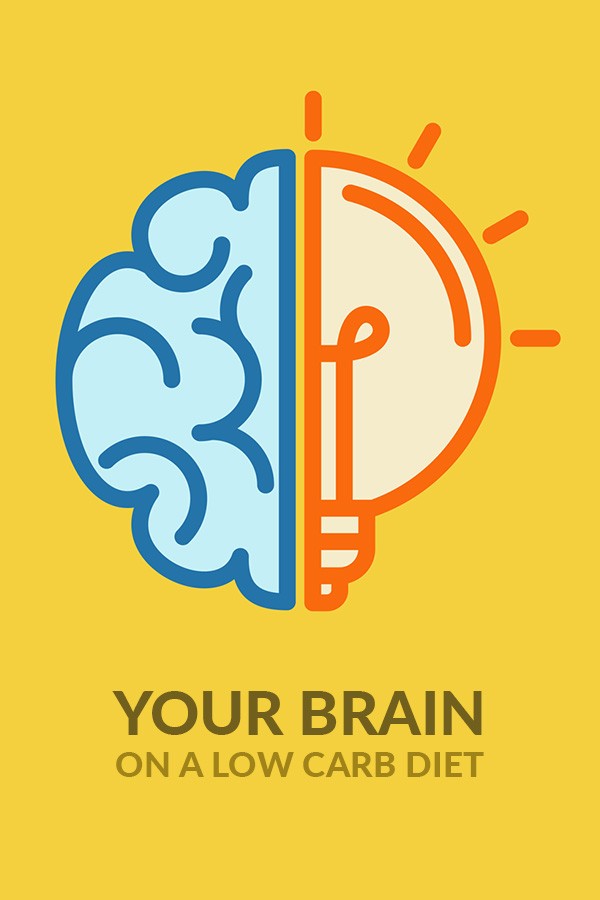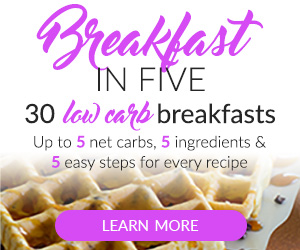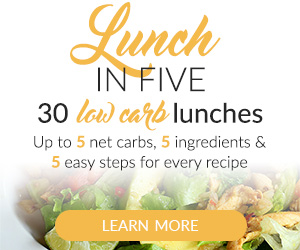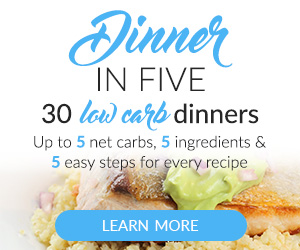Many people use low carb diets for weight loss but some debate whether a low carb diet plan is all that healthy for the mind. The brain is a powerful organ burning upwards of 300 calories a day, and it runs on carbs – glucose to be exact1. Glucose is the product of metabolized carbohydrates and the brain craves its fuel like a child craves candy. The question becomes: “is depriving the brain of fuel a smart idea?”
The short answer is no; you should not deprive your brain of fuel because this will lead to a loss of memory, inability to focus or think, and gives you that overall feeling of brain fog. This is the opposite of healthy, cognitive function in the brain and this type of fuel deprivation may have people turning to their favorite comfort foods to give them that little boost in brain power.
However, eating a diet high in carbs often puts you on the blood sugar rollercoaster, not to mention the long-term ill effects of heavy carbohydrate consumption with regard to diabetes, heart disease, and cancer. When you eat a lot of carbs, you’re up one minute and then down the next. Your mind is fired up and full speed ahead but before you know it, you crash, and your candy-craving brain is screaming at you for more carbs.
4-Week Keto Meal Plan
- 4 Weeks of Delicious Keto Recipes!
- Leftovers and Bulk Preps Included
- Maximize Your Keto Diet's Success
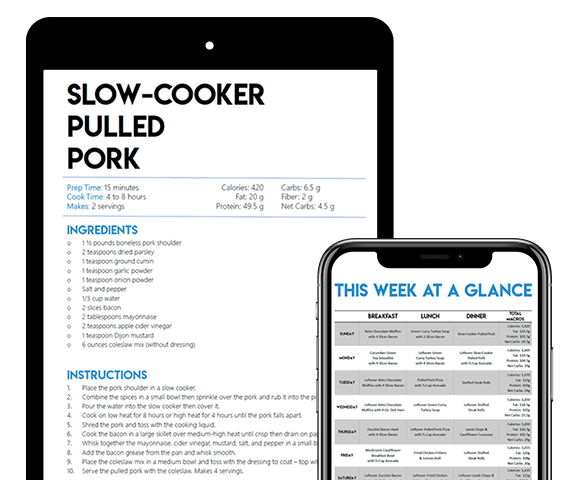
Breaking the physical addiction to carbs is the only way to get off that rollercoaster of fatigue and anxiety that comes with crashing on a blood sugar high. When people maintain a low carb diet, they often maintain the same amount of protein intake as a high carb diet and get most of their carbohydrates from high-quality foods like veggies, nuts, or berries. The big difference with a low carb diet is the increase in consumption of essential fatty acids. In other words, fats and carbohydrates typically have inverse relationships when dieting meaning you either eat high carb and low fat or low carb and high fat.
Depriving the brain of glucose will result in low energy and brain function, but this is in the short term if you add foods high in essential fats to your diet. People will experience a fuzzy kind of feeling at first, but the brain is a remarkably amazing organ. After only three to four days of low carb intake, the brain switches from craving glucose to running on ketone bodies available in the blood.
Ketones are the byproducts of metabolized fatty acids found in many of the foods people eat when on a low carb diet plan, including avocados, almonds, eggs, and fish. The brain responds to the drop in glucose by running up to 70% on ketone bodies. The brain runs much more efficiently on ketones than on glucose alone2.
The brain turns to the ketone bodies to satiate its hunger, which improves long-term cognitive ability and supports cellular growth since the brain is primarily composed of fats3. The ketone fueled mind also enjoys a far more balanced mood and better hormone regulation than the glucose fueled mind, leading to less stress and anxiety long-term.
Adults wishing to support a healthy lifestyle by maintaining their weight and balancing their brain power functions can easily achieve the ketosis metabolic state with a low carb diet plan that includes healthy portions of essential fatty acids and quality carbohydrates. The long-term effects of the ketogenic diet support a healthy lifestyle with a trim waistline and a sharpened mind.
NUTRITIONAL DISCLAIMER
The content on this website should not be taken as medical advice and you should ALWAYS consult with your doctor before starting any diet or exercise program. We provide nutritional data for our recipes as a courtesy to our readers. We use Total Keto Diet app software to calculate the nutrition and we remove fiber and sugar alcohols, like erythritol, from the total carbohydrate count to get to the net carb count, as they do not affect your blood glucose levels. You should independently calculate nutritional information on your own and not rely on our data. The website or content herein is not intended to cure, prevent, diagnose or treat any disease. This website shall not be liable for adverse reactions or any other outcome resulting from the use of recipes or recommendations on the Website or actions you take as a result. Any action you take is strictly at your own risk.
- Keto-Friendly Food Swaps for Common Ingredients - July 11, 2023
- Keto Diet and Acne: Reducing Breakouts and Promoting Clear Skin - July 9, 2023
- Can the Keto Diet Help with Epilepsy? - July 7, 2023
